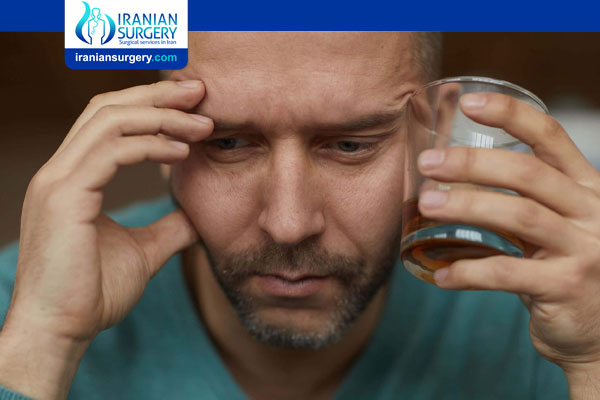How Long After Hair Transplant Can I Drink Alcohol?
Can I drink alcohol before or after a hair transplant?
Getting a hair transplant is a major, often life-changing step, so you’ll clearly want to maximize the likelihood of its success. To do this effectively, you will need to avoid drinking alcohol before and after your surgery. This post explains how alcohol does affect a hair transplant and includes before and after advice to help you get the most from your treatment.
Can I Drink Alcohol Before a Hair Transplant?
To increase the chances of a straightforward recovery and great, natural-looking results, it’s important to follow your surgeon’s advice when it comes to diet and lifestyle. A little dedication and commitment before your surgery could pay dividends in the long run.
As part of our recommendations, we encourage patients to avoid drinking alcohol in the week leading up to the surgery. This gives your body time to process any alcohol already in your system and allows your blood pressure to return to its normal level. Crucially, it helps to reduce the risk of complications and gives your hair transplant the best possible chance of success.
We also advise that patients refrain from consuming spicy food, garlic, caffeine and multivitamins in the week before their hair transplant. Like alcohol, these have all been shown to affect the blood supply to the scalp. In addition, we recommend that patients avoid strenuous exercise in the few days preceding their surgery.
Patients that smoke should quit as soon as possible before their treatment, and ideally refrain from smoking for as long as possible afterwards, as smoking can damage the new hair grafts (you can read more about this in our blog post ‘How long after a hair transplant can you smoke cigarettes?’).
Read more about : Can i drink alcohol after BBL?
Can I Drink Alcohol After a Hair Transplant?
It is not recommended that you drink alcohol after a hair transplant. Drinking alcohol can jeopardize the success of the treatment, as it increases the risk of developing complications during and after surgery. It can also threaten the survival of the implanted hair grafts.
For these reasons, patients are advised to avoid consuming alcohol for a period of time before and after a hair transplant.
How Long After a Hair Transplant Can You Drink Alcohol?
To give the new hair grafts the best chance of success and to improve the likelihood of a fast and trouble-free recovery, it’s best to avoid alcohol for 10 days after a hair transplant. If you choose to drink alcohol before this, we suggest that it’s restricted to very limited amounts.
While alcohol isn’t recommended after a hair transplant, it’s important to stay hydrated. Drinking plenty of water during the recovery period helps to promote healing in the transplanted area and encourages optimum growth of the hair grafts. Other non-alcoholic beverages such as tea, fruit juice and squash can also help you to maintain healthy levels of hydration following your surgery.
The Effects of Alcohol on A Hair Transplant
So, why is alcohol prohibited before and after a hair transplant? Consuming alcohol in the days surrounding a hair transplant, whether that’s red wine, whiskey or any other alcoholic beverage, can threaten the success of your treatment for several reasons:
It thins the blood: drinking alcohol has been shown to thin the blood. If the blood is thin, patients are more likely to bleed during their surgery, which can make the procedure more difficult. What’s more, if the scalp continues to bleed excessively after surgery, the treated areas will form more scabs and it will take significantly longer for the signs of surgery to resolve. This can result in a more prolonged recovery process.
It leads to swelling: alcohol causes our veins to dilate, which can lead to more swelling of the head. This may negatively impact the success of a hair transplant and can increase the discomfort experienced in the early days after surgery.
It dehydrates the body: drinking alcohol has a diuretic effect on the body, meaning our kidneys produce more urine, flushing more water from the body. As a result, our skin becomes drier and dehydrated, which can hinder the health and survival of the grafts.
Of course, it’s also best to avoid drinking alcohol if you are taking painkillers which can cause sedation, including those that might be given after your treatment.
Watch our video for more information on how simple diet and lifestyle changes can help to make your hair transplant a success.
Source:
https://www.themaitlandclinic.com/drink-alcohol-before-after-hair-transplant/


